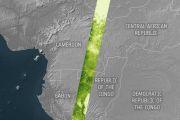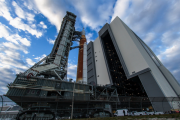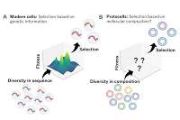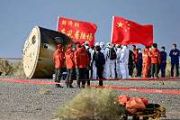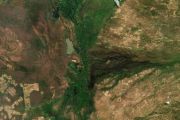
Copernical Team
Solar Orbiter's pictures of the sun are every bit as dramatic as you were hoping

On March 26, the ESA's Solar Orbiter made its closest approach to the sun so far. It ventured inside Mercury's orbit and was about one-third the distance from Earth to the sun. It was hot but worth it.
The Solar Orbiter's primary mission is to understand the connection between the sun and its heliosphere, and new images from the close approach are helping build that understanding.
According to the ESA, the Solar Orbiter is the most complex scientific laboratory ever sent to the sun. It carries a robust suite of instruments, including a magnetometer, the Extreme Ultraviolet Imager, the Solar Wind Plasma Analyzer, and others. Its broad range of instruments allows it to observe solar events in multiple ways.
The spacecraft benefits from getting as close to the sun as it can. But close approaches make the Solar Orbiter hot. The spacecraft's first line of defense is its heat shield. It's a multi-layered titanium device mounted on a honeycomb aluminum support, with carbon fiber skins designed to shed heat. Between all that and the spacecraft's body, there are another 28 layers of insulation.
What the Voyager space probes can teach humanity about immortality and legacy
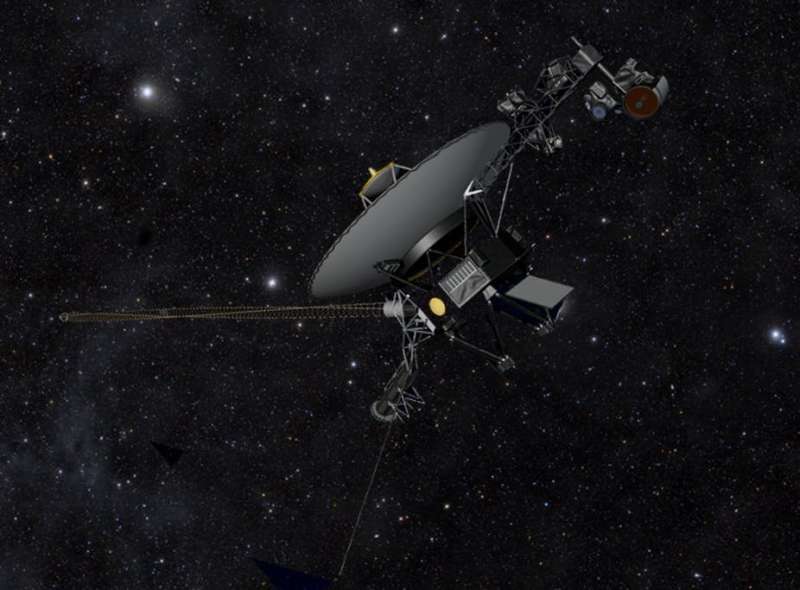
Voyager 1 is the farthest human-made object from Earth. After sweeping by Jupiter, Saturn, Uranus and Neptune, it is now almost 15 billion miles (24 billion kilometers) from Earth in interstellar space. Both Voyager 1 and its twin, Voyager 2, carry little pieces of humanity in the form of their Golden Records. These messages in a bottle include spoken greetings in 55 languages, sounds and images from nature, an album of recordings and images from numerous cultures, and a written message of welcome from Jimmy Carter, who was U.S. president when the spacecraft left Earth in 1977.
The Golden Records were built to last a billion years in the environment of space, but in a recent analysis of the paths and perils these explorers may face, astronomers calculated that they could exist for trillions of years without coming remotely close to any stars.
Taking climate monitoring into the future with quantum

Over the last decades, satellites measuring the many aspects of Earth have certainly demonstrated their worth with the information they yield to understand and monitor our environment and, importantly, to provide undeniable evidence of climate change for policymaking. While Europe is currently firmly placed as a world leader in Earth observation, it’s critical to stay ahead of the game by examining how even more sophisticated space technologies can be developed to return even more precise information in the future. Today, at ESA’s Living Planet Symposium, being held in Bonn, scientists dug deep into the potential of spaceborne quantum
Putting the future in FutureEO

With scientific excellence at the very heart of ESA’s FutureEO programme, participants at this week’s Living Planet Symposium have been making it clear that new research missions to advance Earth science must continue to be realised in the future.
NASA's Perseverance rover's playlist like no other on Mars
 Since NASA's Perseverance rover landed on Mars, its two microphones have recorded hours of audio that provide valuable information about the Martian atmosphere.
Baptiste Chide, of Los Alamos National Lab, will discuss the importance of this acoustical information in the presentation, "Mars soundscape: Review of the first sounds recorded by the Perseverance microphones," at the 182nd Meetin
Since NASA's Perseverance rover landed on Mars, its two microphones have recorded hours of audio that provide valuable information about the Martian atmosphere.
Baptiste Chide, of Los Alamos National Lab, will discuss the importance of this acoustical information in the presentation, "Mars soundscape: Review of the first sounds recorded by the Perseverance microphones," at the 182nd Meetin Unistellar and SETI Institute expand Worldwide Citizen-Science Astronomy Network
 The number of citizen scientists surveying the night sky is about to soar, thanks to grants by the Lounsbery Foundation and the Gordon and Betty Moore Foundation to Unistellar and the SETI Institute.
A pioneer of New Astronomy, Unistellar is the company behind a new category of telescopes, the eVscopes, the world's most powerful and simple-to-operate smart telescopes. In just a few years,
The number of citizen scientists surveying the night sky is about to soar, thanks to grants by the Lounsbery Foundation and the Gordon and Betty Moore Foundation to Unistellar and the SETI Institute.
A pioneer of New Astronomy, Unistellar is the company behind a new category of telescopes, the eVscopes, the world's most powerful and simple-to-operate smart telescopes. In just a few years, Upper Stage Propulsion System for future Artemis mission reaches major milestone
 While the Artemis I team prepares for its upcoming mission, NASA and contractor teams are already building rockets to support future Artemis Moon missions. In United Launch Alliance's (ULA) factory in Decatur, Alabama, major components have been completed for the Artemis III interim cryogenic propulsion stage (ICPS) that will provide the power to send astronauts to the Moon.
The ICPS, whic
While the Artemis I team prepares for its upcoming mission, NASA and contractor teams are already building rockets to support future Artemis Moon missions. In United Launch Alliance's (ULA) factory in Decatur, Alabama, major components have been completed for the Artemis III interim cryogenic propulsion stage (ICPS) that will provide the power to send astronauts to the Moon.
The ICPS, whic Dutch researchers teleport quantum information across rudimentary quantum network
 Researchers in Delft have succeeded in teleporting quantum information across a rudimentary network. This first of its kind is an important step towards a future quantum Internet. This breakthrough was made possible by a greatly improved quantum memory and enhanced quality of the quantum links between the three nodes of the network. The researchers, working at QuTech-a collaboration between Delf
Researchers in Delft have succeeded in teleporting quantum information across a rudimentary network. This first of its kind is an important step towards a future quantum Internet. This breakthrough was made possible by a greatly improved quantum memory and enhanced quality of the quantum links between the three nodes of the network. The researchers, working at QuTech-a collaboration between Delf Fleet Space reports launch of Centauri 5 satellite
 Fleet Space Technologies announces today that it successfully launched its next-generation Centauri 5 satellite on the Space X Falcon 9 Transporter-5 mission. The launch took place at 03:57AM ACST.
This was the company's third launch with SpaceX, following the successful deployment of Centauri 4 on the Transporter-2 mission in June 2021.
Centauri 5 will be placed in low earth orbit (
Fleet Space Technologies announces today that it successfully launched its next-generation Centauri 5 satellite on the Space X Falcon 9 Transporter-5 mission. The launch took place at 03:57AM ACST.
This was the company's third launch with SpaceX, following the successful deployment of Centauri 4 on the Transporter-2 mission in June 2021.
Centauri 5 will be placed in low earth orbit ( ICEYE completes its largest satellite launch ever with SpaceX
 ICEYE, the global leader in persistent monitoring with radar satellite imaging and an expert in flood and natural catastrophe (NatCat) solutions, has successfully launched five new SAR satellites. All spacecraft were launched on SpaceX's Falcon 9 smallsat rideshare mission via EXOLAUNCH from Cape Canaveral, Florida.
Communication has successfully been established with each spacecraft. ICEY
ICEYE, the global leader in persistent monitoring with radar satellite imaging and an expert in flood and natural catastrophe (NatCat) solutions, has successfully launched five new SAR satellites. All spacecraft were launched on SpaceX's Falcon 9 smallsat rideshare mission via EXOLAUNCH from Cape Canaveral, Florida.
Communication has successfully been established with each spacecraft. ICEY 





